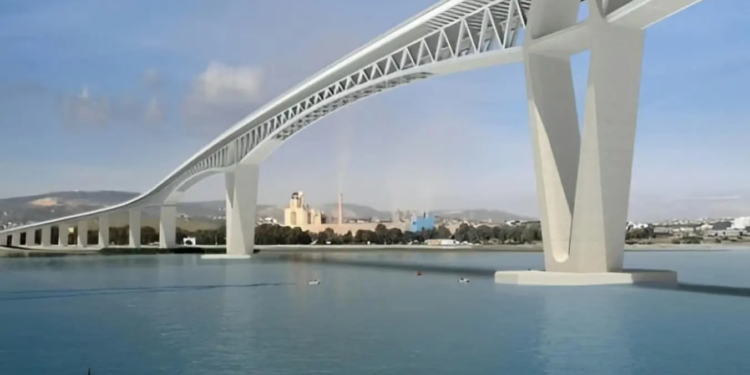The Ambassador of the People’s Republic of China to Tunisia, Wan Li, presented a detailed progress report on several structuring projects carried out in partnership with Beijing. He first assured that the Bizerte bridge construction site is progressing “according to the set schedule”, with a progress rate of 14% and delivery expected in 2027. This megaproject, often seen as a test of the Tunisian-Chinese capacity to collaborate on large-scale infrastructure, is the subject of regular monitoring by both parties.
Speaking on Mosaique FM, the ambassador then focused on the issue of the El Menzah stadium. He confirmed that Tunis and Beijing signed a memorandum of understanding two weeks ago relating to the complete reconstruction of the sports venue. Wan Li, however, called for strengthening administrative coordination between the two countries in order to speed up procedures and allow work to begin next year. The project is symbolically important, both for its national visibility and its diplomatic dimension, with Beijing seeking to translate its cooperation into concrete achievements.
Concerning the Aghlabid medical city in Kairouan, the ambassador indicated that a memorandum of understanding was also signed to launch a feasibility study. The Tunisian side has already completed the first phase of this study, and the two partners must now set the date for a virtual meeting in order to continue the technical and economic analysis of the project. The ambassador insisted that major projects require in-depth studies before any financial commitment.
Wan Li, however, introduced an important nuance: despite administrative progress, “no coordination yet exists” regarding financing mechanisms. This clarification reflects both Chinese prudence and the reality of a partnership which is moving forward in stages, without immediate guarantee of financial realization.
Through these clarifications, China reiterates its interest in Tunisian projects, while emphasizing the essential technical prerequisites before moving on to the investment phase. For Tunis, the challenge will be to maintain the pace of coordination in order to transform these announcements into effective projects, in an economic context where each structuring project can influence attractiveness and recovery.
Also read:








